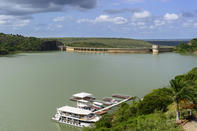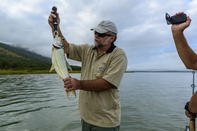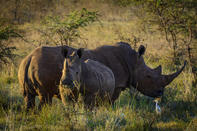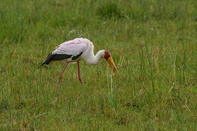Pongolapoort Dam
Built across Pongolapoort in the wild Lebombo Mountains to irrigate the farms of the Makatini Flats below, Pongolapoort Dam was a white elephant economically, but has proven to be a wilderness haven. Not only do crocodiles, hippos and tigerfish live in the waters of Lake Jozini, as it is also known, but many large animals roam its shores in private and public reserves. While leopards have always roamed these densely vegetated mountains, more recently, elephants, wild dogs and cheetahs have been introduced to supplement the other wildlife.
You can enjoy a luxurious holiday aboard Shayamanzi Houseboat or visit the Pongola Game Reserve, the oldest in Africa - or spoil yourself at any of the private lodges such as White Elephant Lodge or Pakamisa Paradise Hotel. The whole area is one of South Africa's really impressive wild places.
Pongola Game Reserve
Pongola Game Reserve is the second oldest reserve globally and the oldest in South Africa. It is home to a remarkable collection of wildlife and lush vegetation. The reserves habitats range from Zulu lowveld to grasslands. The rewarding game drives, excellent photography opportunities and tranquil atmosphere is bound to entice any visitor. The wildlife you’ll most likely spot are elephant, rhino, leopard, wildebeest, giraffe and various buck species, as well as hippo and crocodile. There are over 350 bird species, so bird watchers will be delighted to know that they can spot birds like yellow-billed stork, african marsh harrier and martial eagle.
The reserve was proclaimed in 1894 and since its inception, it has been committed to implementing various conservation projects to ensure animal’s habitats are kept intact. They work together with landowners, official conservation services and indigenous communities to sustain the successful project. The reserve also hosts the Rhino Walk, a trail that is home to over 40 rhino.



